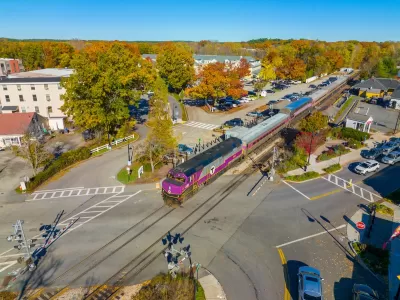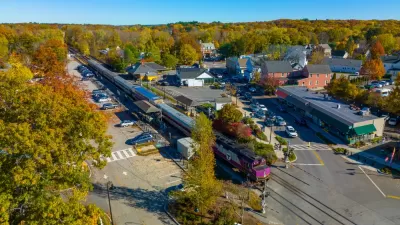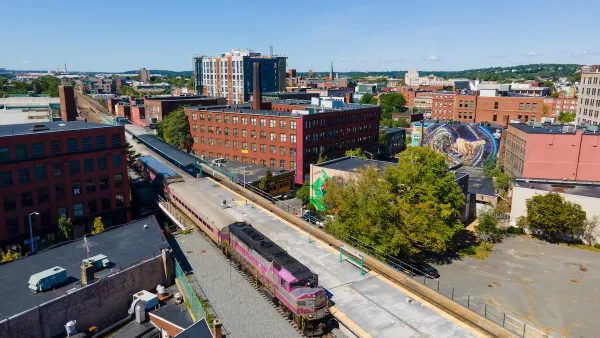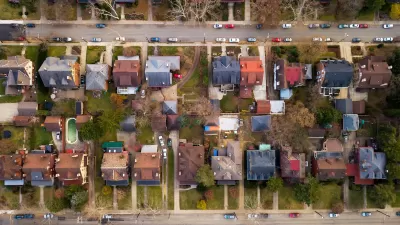While some cities are fighting the state’s push to increase density near transit, others are already breaking ground on multifamily projects that will bring hundreds of new housing units online.

Massachusetts communities are responding in varied ways to the state’s MBTA Communities Act, a zoning reform mandate that calls on cities to streamline permitting for residential developments near transit stations.
As Abby Patkin explains in an article for Boston.com, some cities, like Milton, are fighting the state’s effort to boost the housing supply, while others are embracing the change and making way for higher-density housing. “Take Lexington, where housing proposals have begun pouring in. Or Westwood, which recently saw a 160-unit mixed-use project break ground. Somerville, meanwhile, is in the midst of a triple-decker renaissance.” In Lexington, the seven proposals submitted to the city would create 960 total new housing units. The town is working with developers to conduct water and sewer capacity analyses in advance of construction to ensure local infrastructure can handle the new housing.
The law requires the 177 communities served by MBTA transit lines to adjust zoning around stations to allow for higher-density multifamily housing. “Whether the law will be as transformative as lawmakers hoped remains to be seen, though affordable housing advocates say it’s a step in the right direction,” Patkin adds.
Zoning expert Amy Dain notes that while MBTA Communities could make a major impact on the housing supply, it won’t be enough to end the housing crisis. “[E]ven if MBTA Communities is fully implemented, there’s going to be more work ahead to make sure there’s housing for everybody, and appropriate housing, safe housing, diverse housing, and housing in places where people want to live and have access to jobs and schools and places they want to go to.”
FULL STORY: These towns are seeing results from the MBTA Communities Act

Planetizen Federal Action Tracker
A weekly monitor of how Trump’s orders and actions are impacting planners and planning in America.

Congressman Proposes Bill to Rename DC Metro “Trump Train”
The Make Autorail Great Again Act would withhold federal funding to the system until the Washington Metropolitan Area Transit Authority (WMATA), rebrands as the Washington Metropolitan Authority for Greater Access (WMAGA).

The Simple Legislative Tool Transforming Vacant Downtowns
In California, Michigan and Georgia, an easy win is bringing dollars — and delight — back to city centers.

The States Losing Rural Delivery Rooms at an Alarming Pace
In some states, as few as 9% of rural hospitals still deliver babies. As a result, rising pre-term births, no adequate pre-term care and harrowing close calls are a growing reality.

The Small South Asian Republic Going all in on EVs
Thanks to one simple policy change less than five years ago, 65% of new cars in this Himalayan country are now electric.

DC Backpedals on Bike Lane Protection, Swaps Barriers for Paint
Citing aesthetic concerns, the city is removing the concrete barriers and flexposts that once separated Arizona Avenue cyclists from motor vehicles.
Urban Design for Planners 1: Software Tools
This six-course series explores essential urban design concepts using open source software and equips planners with the tools they need to participate fully in the urban design process.
Planning for Universal Design
Learn the tools for implementing Universal Design in planning regulations.
Smith Gee Studio
City of Charlotte
City of Camden Redevelopment Agency
City of Astoria
Transportation Research & Education Center (TREC) at Portland State University
US High Speed Rail Association
City of Camden Redevelopment Agency
Municipality of Princeton (NJ)





























